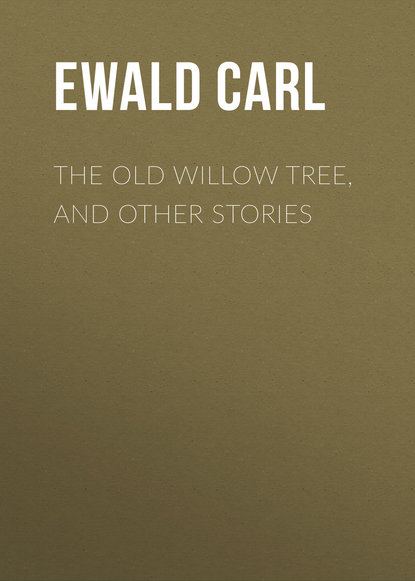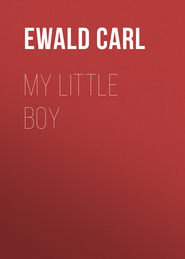По всем вопросам обращайтесь на: info@litportal.ru
(©) 2003-2024.
✖
The Old Willow Tree, and Other Stories
Настройки чтения
Размер шрифта
Высота строк
Поля
"Isn't it possible for you to grow taller in stature?" asked the nearest poplar. "You ought never to have been here, but, once you've joined the avenue through an accident, I should like to ask you to stretch yourself up a bit."
"I'll do my best," answered the willow-tree.
"I fear your best isn't good enough," said the poplar. "You have no grip at all to keep your branches in with. They hang quite slack on every side, just as if you were a common beech or birch or oak or whatever the ordinary trees are called."
"Do you call me ordinary, you windbag?" said the oak.
The poplar did not mind a jot what the oak said, but went on admonishing the willow-tree:
"You should take example by the squire's wife," he said. "At first she was no better than a common kitchen-maid. She used to scour the pots and make up the fire and stir the milk when it boiled. I used often to see her go down the avenue bare-armed and bare-headed, with a pail in her hand and her skirts tucked back."
"So did we … so did we … so did we," whispered the poplars along the avenue.
"Then the squire fell in love with her and made her his wife," said the poplar. "Now she goes in silk, with a train to her dress and ostrich-feathers on her head and gold slippers on her feet and long gloves from Paris on her hands. She looks down from on high: only yesterday she was driving along here in her smart turn-out with the four bays."
"We saw her … we saw her … we saw her," whispered the poplars along the avenue.
"She joined the avenue, do you see?" said the poplar. "She learnt to hold herself erect and whisper; and now she whispers and holds herself erect. I think you might profit by her example. After all, you belong to the family, even though you are not one of the real poplars; so it ought to be easier for you than her."
"I'll do my best," said the willow-tree.
But nothing came of it. His branches kept on growing out at the sides and the whole tree was not more than half as tall as the lowest poplars. For the rest, he was quite nice and comfortable-looking, but that's not what counts in the smart world.
And the poplars grew more and more annoyed every day.
They themselves stood stiff and straight and strutted and gave no more shade than their trunks were able to cast. But under the willow there was quite a big shady place.
"He's ruining the whole avenue," said the nearest poplar.
"The whole avenue … the whole avenue … the whole avenue," whispered the poplars.
Then, one regular sunny summer's day, the squire came walking along. He took off his hat, wiped the perspiration from his forehead and sat down in the shade of the willow:
"Thank you for your shade, you good Willow-Tree," he said. "Those confounded poplars stand there and strut and don't give as much shade as the back of my hand. I think I'll cut them all down and plant willows in their stead."
For that happened to be his mood that day.
"Did you hear the squire praise me?" said the willow-tree, when he had gone.
"Goodness gracious!" said the nearest poplar. "Did we hear him? It's a perfect scandal! He talked just like a common peasant. But, of course, that comes of marrying a kitchen-maid. It's the truest thing that ever was said, that birds of a feather fly together."
"Birds of a feather fly together … fly together … fly together … together … together," whispered the poplars all along the avenue.
The oak on the little hillock in the fields twisted his crooked branches with laughter. The wild rose, whose hips were already beginning to turn red, nodded to the willow-tree:
"Every one has his position in life," she said. "We have ours and the smart ones theirs. Now I wouldn't change with anybody."
"Still, one would like to give satisfaction in one's position," said the willow-tree and sighed!
4
After the warm days came rain and drizzle and wind. The roads became difficult because of the mud and slosh. Only in the avenue did it dry up soon, however hard it had rained. For the poplars gave no shade, so the sun was able to come at once as soon as the rain had ceased. And they gave no shelter either, so the wind came with a rush and dried the puddles.
The squire came driving with his wife. When the carriage reached the place where the willow stood, the wet mud splashed all over her new silk dress.
"Ugh!" she said.
"What's all this nasty mess?" asked the squire.
The keeper, who was sitting on the box beside the coachman, pointed to the willow-tree:
"It's that fellow there," he said. "He was planted by mistake and now he has stood and grown big. He shelters the ground from the wind and shades it from the sun, so there is always a big puddle under him, long after the rest of the avenue is dry."
"Did you ever hear of such a thing?" said the squire. "And the look of him, too! He spoils the whole of the beautiful, stately avenue. See and poll him to-morrow, keeper. Off with the whole of his crown, do you hear?"
For that happened to be his mood that day.
On the next day, they came and sawed the willow-tree down to a man's height. Only the thick naked trunk remained. Not a leaf was-left, except five that stood on a little twig down by the ground and really had no business to be there at all. The whole of the splendid crown lay in the ditch. The keeper chopped all the branches into pieces with his axe.
"Will they become cuttings?" asked the willow, disconsolately.
"They will become faggots," replied the keeper and went on chopping to the last stick.
"Then rather let me die at once," said the willow.
"For the present, you will stay where you are, till the winter is past," said the keeper. "When the snow lies thick and smooth all over the roads, you can do good service as a warning-post against the ditch. What will happen afterwards depends upon the squire."
"That was a fine ending to the cutting-farce," said the oak-tree.
"Poor Willow-Tree!" said the wild rose-bush.
"Thank you," said the willow-tree. "I still feel a little stunned. It is no trifle to lose the whole of one's crown. I don't quite know what's to become of me."
"It's a terrible scandal," said the nearest poplar. "A wholly unprecedented family-scandal. If only they would come and take you away altogether, so that you couldn't stand there and disgrace us like a horrible, withered stick!"
"A family-scandal … a scandal … a scandal," whispered the poplars along the avenue.
"I don't feel at all withered, oddly enough," said the willow-tree. "I don't know either that I have done anything to be ashamed of. I was set up here and I did my best to fill the position. The squire praised me one day and cut me down another. We must take life as it comes. I shall never be a poplar, but I am one of the family for all that. And a family has other qualities, besides pride. So let us see in a year's time what becomes of me."
"He's speaking like a man," said the wild rose-bush.
The oak-tree said nothing. The poplars whispered in their superior way, but talked no more about the family-scandal.
5
Now it so happened that the squire and his wife went to Italy and stayed there for a couple of years. And this, in its turn, led to the result that the polled willow was left to stand in peace among the proud poplars. When the master and mistress were away, there was no one who gave a further thought to the stately avenue.
Throughout the winter, the willow stood silent and perplexed. And it is quite natural that a tree should not care to talk when his head is chopped off. But, half-way through March, suddenly one day he fell a-moaning in the most piteous fashion:








